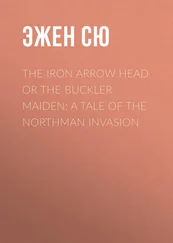Fortunately it was he who had found their bodies, not his sister Catherine.
He had taken to crossing London every other day, from his flat in Battersea to his parents’ three story townhouse overlooking Hampstead Heath, to check on them, cook them a meal and chat about what he was working on at the moment. While they were slowly crumbling physically, mentally they were as alert as they’d ever been.
That spring morning he’d not visited his parents for a couple of days. He had phoned the night before, to apologise and say he’d be around in the morning — but had received no reply. He was not unduly worried, as both were half deaf and often missed his calls.
He let himself in with the spare key, called out that it was him, and ran up the stairs to the commodious, sunny lounge on the first floor.
They were seated together on the sofa facing the big bow window. At first he thought they’d fallen asleep while appreciating the spring morning.
His mother’s head was resting on his father’s shoulder.
He rounded the sofa and stopped dead in his tracks, shock pummelling his solar plexus.
The chest of his mother’s white blouse was soaked in a bib of startling bright blood. Similarly, his father’s waistcoat was stained. The pistol lay on his lap, his fingers loose around its butt.
Allen had staggered backwards, fallen into an armchair, and wept.
Later, when the bodies had been removed, Allen drove to Catherine’s in Belsize Park and broke the news. He recalled little of the hour they spent together, other than telling her that at least his father had not shot his mother and himself through the head. It had seemed an important distinction at the time.
SALLY WAS STILL stroking his thigh, a while later, when they came to the road-block.
It occurred to Allen that it was an odd place to mount a road-block, on a flat stretch of land a couple of kilometres before the boundary of the national park. An ugly green military truck was drawn up by the side of the road and a dozen troops had erected a makeshift barrier consisting of two trestles and a length of red and yellow crime-scene tape.
The troops stood around in postures of boredom and negligence — always, Allen thought, a dangerous combination. They had rifles and machine guns at the ready, but oddly enough he wasn’t encouraged by the thought that they wouldn’t be able to use them.
Sally sat up. “What’s happening?”
“I don’t know. There’s no reason for the road-block, as far as I can make out.”
“How far are we from the park?”
“About two kilometres.”
He slowed down as he approached the fluttering length of tape. Their arrival had galvanised the soldiers who approached the car and stood flanking it, staring in at Allen and Sally with sullen, almost petulant expressions. He glanced at their forefingers, hooked inside the trigger-guards of their respective weapons.
A sudden, alarming thought occurred to him. They were near the border with the Congo. Might these be Congolese troops, taking advantage of the arrival of the starships to cross the border to the relatively affluent Uganda in order to do a little pilfering?
He scanned the uniform of the sergeant, who had disengaged himself from his men and was striding over to the car, but he couldn’t make out the soldier’s insignia.
He murmured, “Keep your hands in sight at all times and don’t make a sudden move.” He smiled across at her. “And don’t worry. We’ll be fine.”
He unpeeled the softscreen from the dashboard, set it on his lap, and kept his hands on the apex of the steering wheel. He smiled out at the approaching officer.
The sergeant halted a metre from the car and said, “Will you please climb out, sir, and the lady also.”
He nodded at Sally, opened the door and climbed out. He felt conscious of being separated from her. The late afternoon sun beat down on his face.
The sergeant reached out. “Papers.”
Allen tried not to smile at the anachronism. No one had papers these days. He proffered his softscreen. On the other side of the car, Sally was passing her ID card to another soldier.
The sergeant jacked a monitor into Allen’s screen and, frowning, scanned the read-out on his own.
He said, “And why are you in Uganda, Mr Allen?”
“To cover a story in Murchison Falls park — the elephant breeding programme. I’m a photographer.”
The sergeant looked over the top of the car. “And you, madam, why are you in Uganda?”
She told him that she worked for the Red Cross in Kallani.
“So you are based there?”
Sally nodded. “That’s right. Yes.”
“And why are you here?”
“Accompanying Mr Allen. I’m on holiday.”
The sergeant looked from Allen to Sally, his gaze unreadable. “There is a state of emergency in the country now. My government has ordered that all foreign nationals must report to the Ugandan embassy for registration.”
Sally made a sound of disgust. “But that’s back in Kampala!”
“Nevertheless, you must report to the embassy, or you will be in breach of regulations.”
Before Sally could argue, Allen said, “That’s fine. We’ll do that. We’re due in Rangay before sunset, so if you would kindly let us past.”
The sergeant stared at him, unmoving. “I must request that you turn back now, go back to the highway and head south.”
Allen smiled and said patiently, “I have work to do in Rangay, a story to cover. We will head to Kampala first thing in the morning.”
The sergeant stared him down. “Mr Allen, you will turn around now, head back to the highway and continue south. The country is under a state of emergency.”
Allen nodded. “Very well.”
The sergeant passed Allen his softscreen and he climbed back into the car. Sally slipped in beside him and slammed the door.
Allen started the engine. “So… what do we do?” He watched the troops mosey back to their truck.
The sergeant turned and stood watching him.
“What do you mean? I thought you’d agreed to the…”
“I mean, do we drive on, through the tape, ignoring the kind sergeant?”
Sally considered, smiling at him like a kid considering a dare. “Do you think they’d try to shoot if we did disobey them?”
“I very much doubt they’d risk shooting two foreign nationals…”
She nodded. “You’ve stirred the troublemaker in me, Mr Allen. Let’s go.”
He revved the engine and rolled the car forward through the tape. As it snapped and fluttered around the windscreen, he accelerated. He heard cries from the soldiers, saw them dash into the middle of the road behind the car. Sally swivelled in her seat. Allen kept his eyes on the road ahead.
“What are they doing?”
“The sergeant’s pointing, giving orders. One of them is raising his rifle…”
Allen hunched in his seat, expecting the sound of gunshots at any second.
“And now?”
She laughed. “Nothing. The soldier’s just standing there, aiming… The sergeant’s yelling something. Right, he’s aiming his own rifle…”
“If he aims at our tyres,” Allen said, “does that constitute violence?”
“If he thinks of that, we might find out,” she said.
It came to him, then, that the sociologists and philosophers would have a fine time trying to work out the parameters of intent, and how they pertained to the blanket proscription on violence.
“They’re just standing there, Geoff. Not even coming after us…”
Allen relaxed, let out a long breath and finally laughed. “I don’t think I’ve truly realised, until now, quite what this means.”
Sally picked up his softscreen from where he’d tossed it between the seats, fastened it to the dash and accessed the memory cache. “Listen,” she said.
Читать дальше












